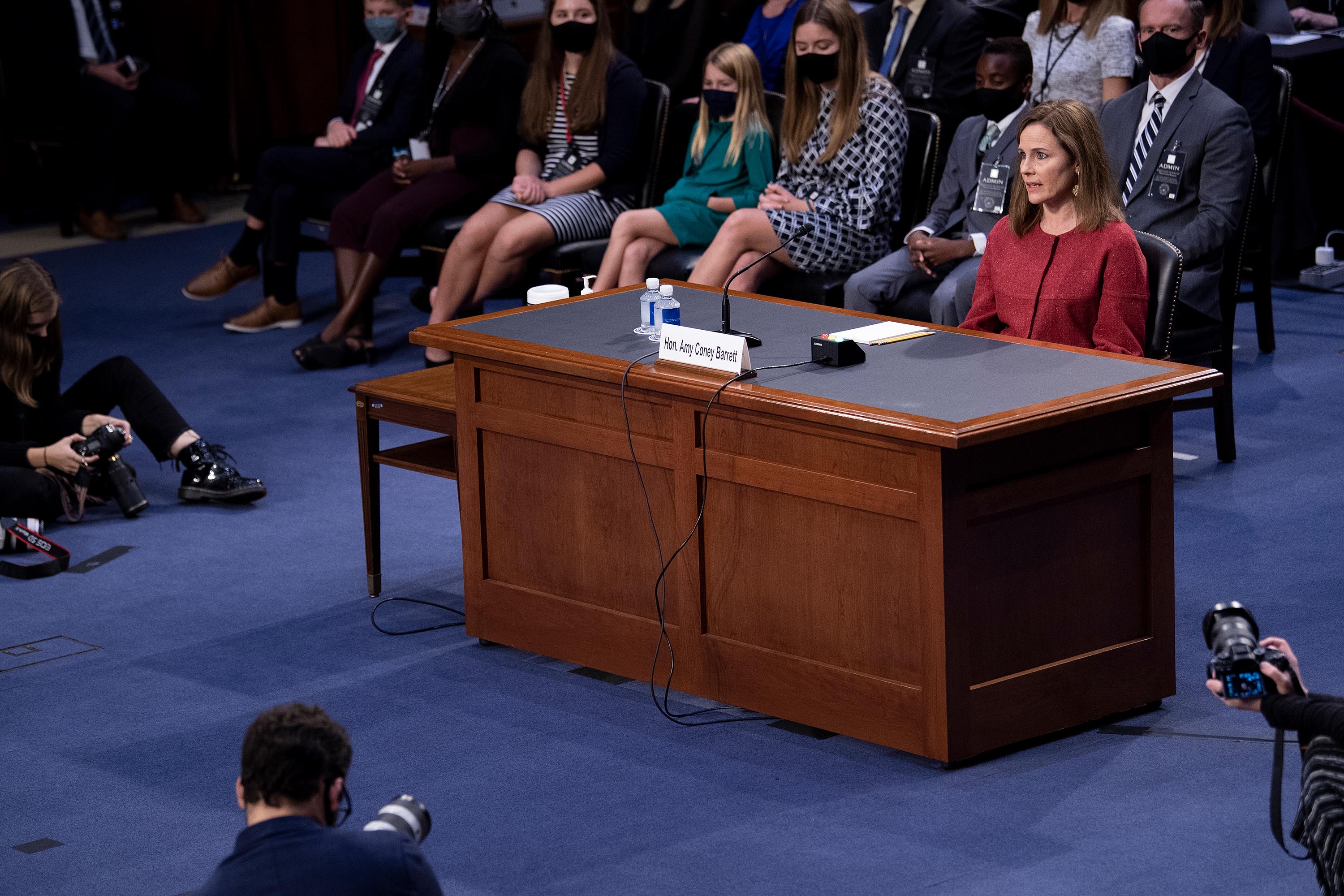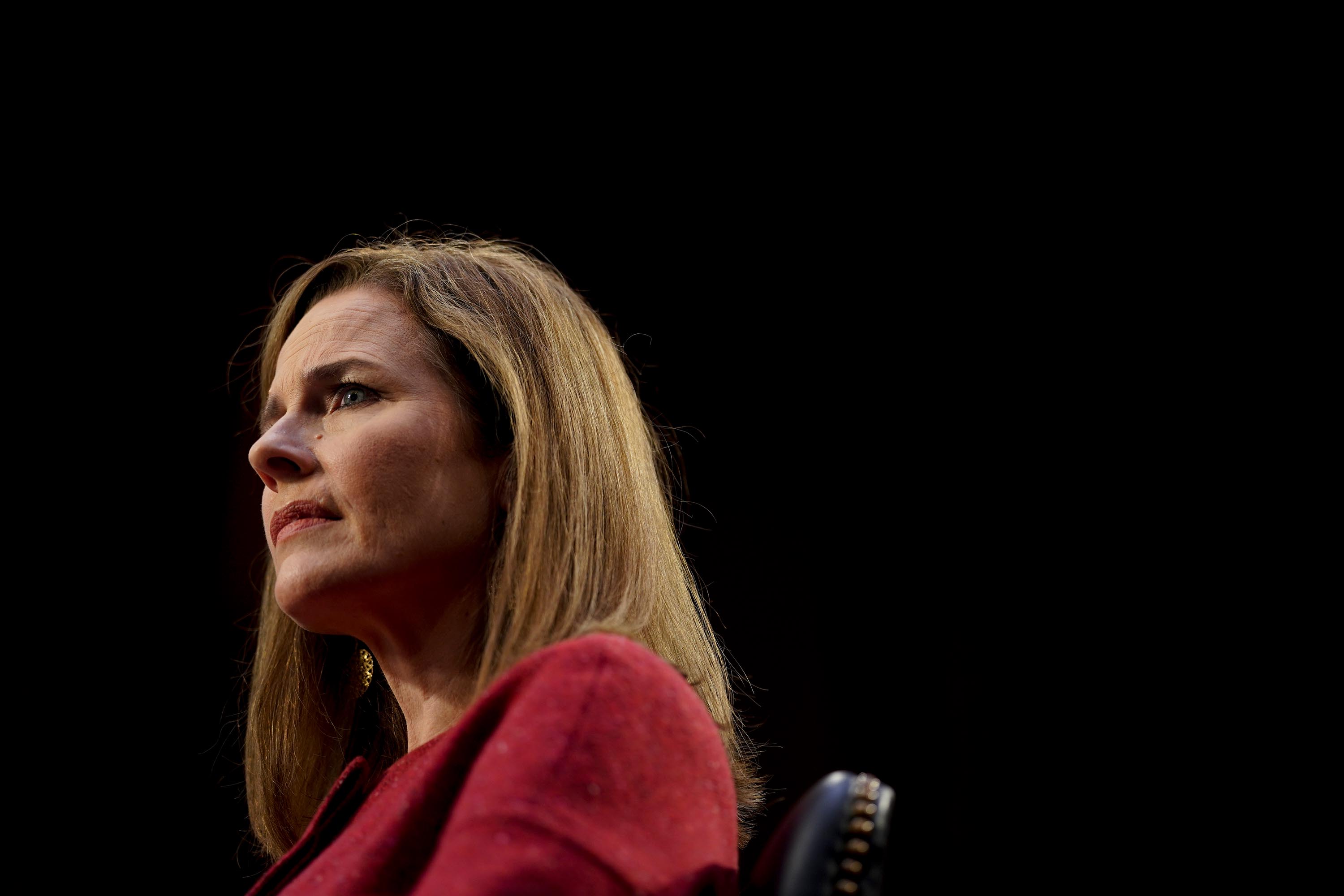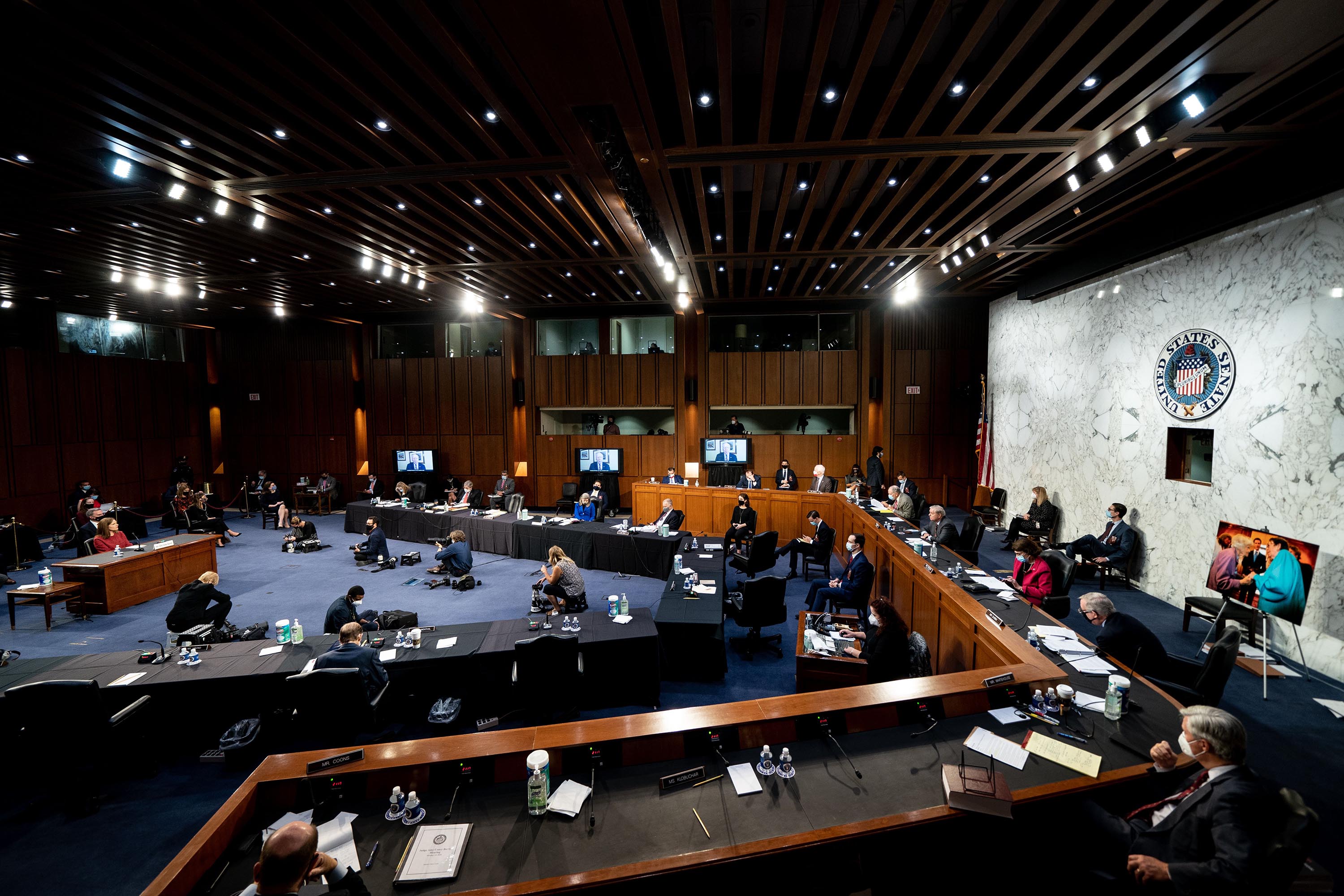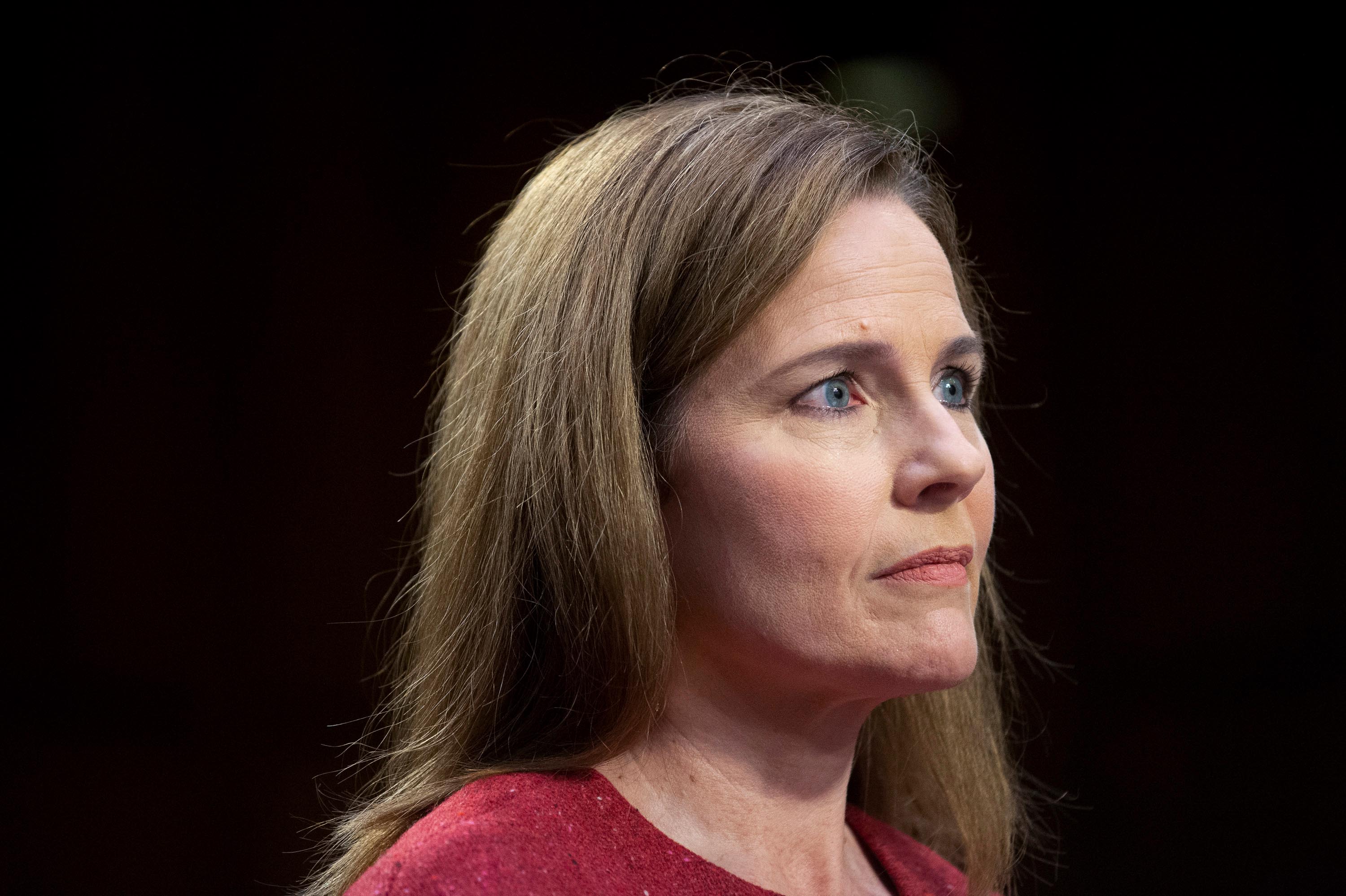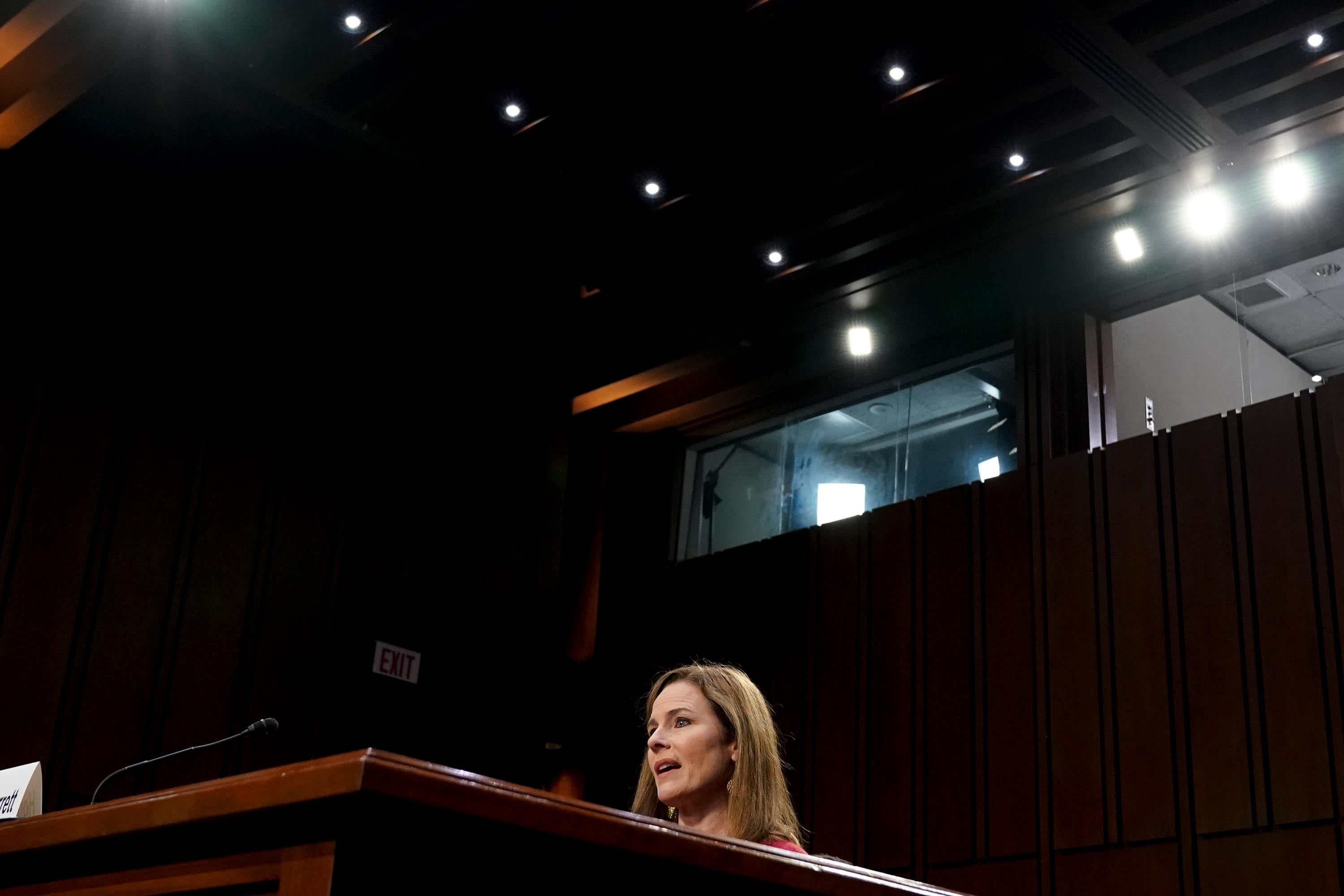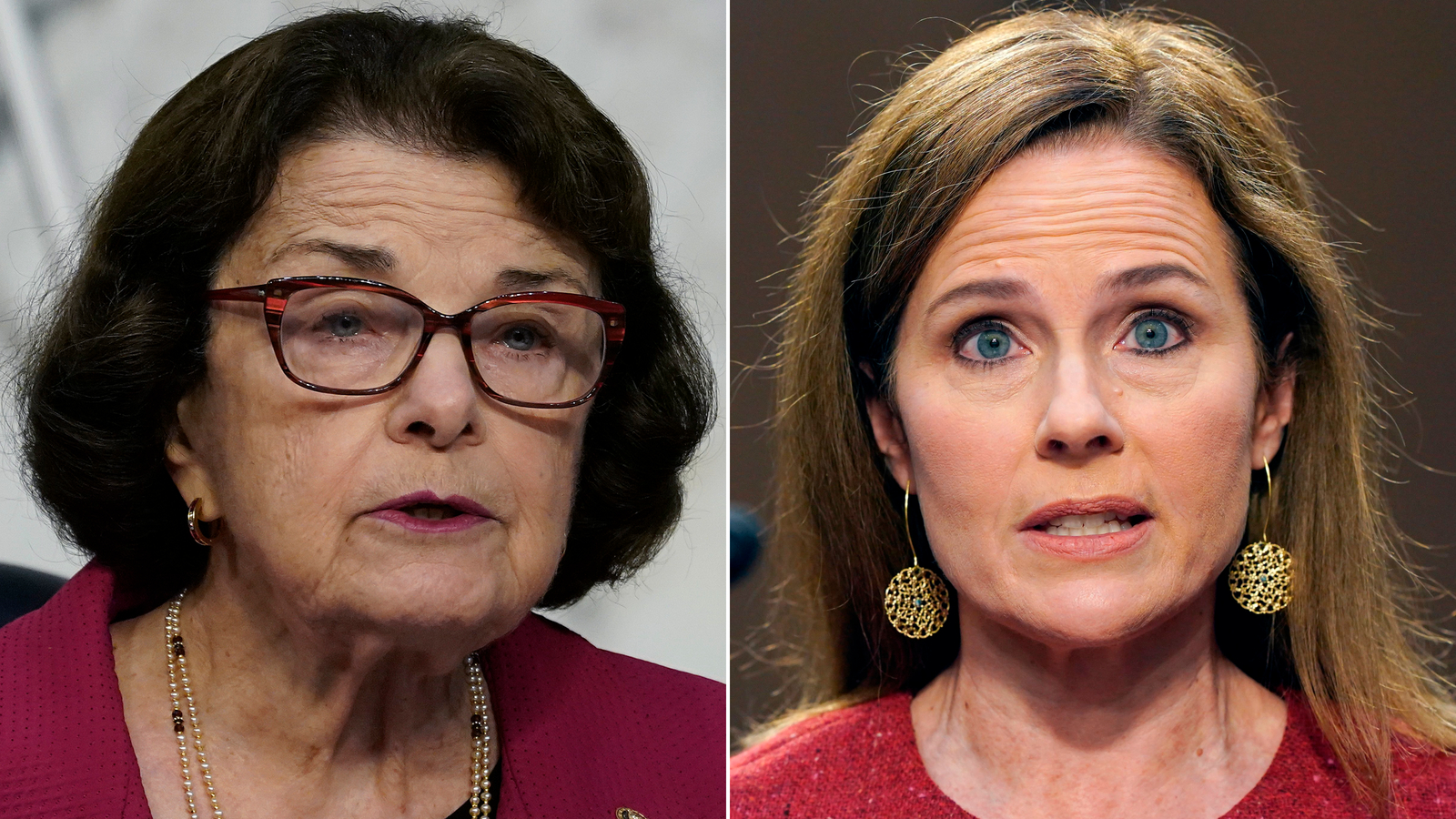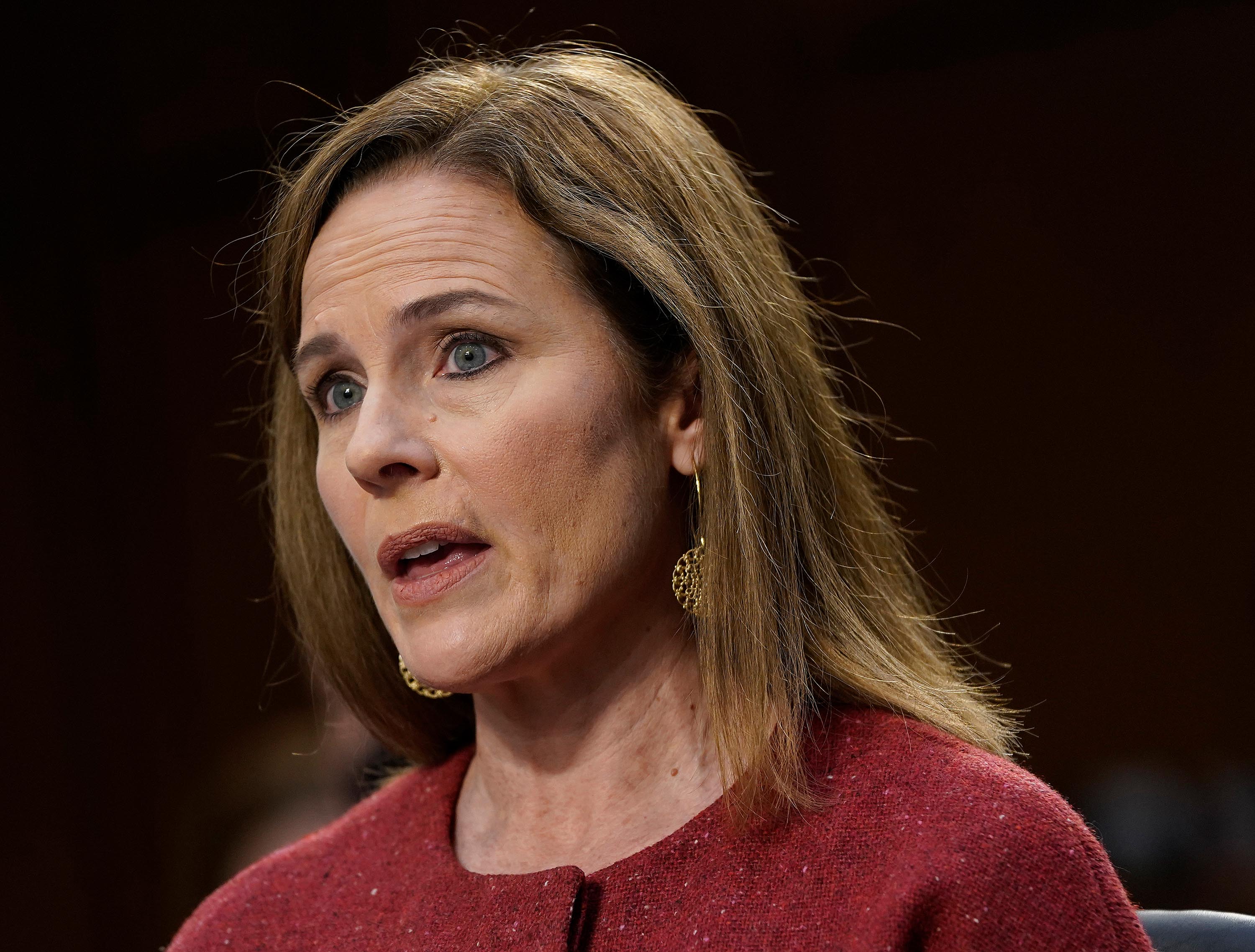Many Democrats on the Judiciary Committee have asked Supreme Court nominee Amy Coney Barrett about the Affordable Care Act today.
The Supreme Court is scheduled to hear arguments on Nov. 10 regarding whether the Affordable Care Act, commonly known as Obamacare, should be tossed out. That could be just weeks after the full Senate has confirmed a new Justice Barrett.
A group of Republican states led by Texas, and backed by the Trump administration, has asked the justices to invalidate the entire law, including provisions that expanded Medicaid to low-income adults, allowed children to remain on their parents' policies until age 26 and guaranteed coverage for people with pre-existing health conditions such as diabetes and cancer.
Trump has opposed the law from its inception and derided the Supreme Court for upholding it. He had pressed Congress to throw out Obamacare to no avail. Now his administration is trying to do through litigation what it failed to accomplish legislatively. Trump's third appointee to the nine-member high court could soon be in a pivotal role toward that effort.
Barrett would succeed Justice Ruth Bader Ginsburg, who died on Sept. 18 and who had consistently voted for the ACA. When the justices first rejected a challenge to the constitutionality of the 2012 law, liberal Ginsburg was part of the narrow 5-4 majority. So was conservative Chief Justice John Roberts. He cast the fifth vote, with four liberals, to uphold Obamacare, but only after construing a disputed provision requiring Americans to purchase health insurance to be valid under Congress' taxing power.
Roberts' ruling has drawn the scorn of conservatives ever since.
What Barrett has said about the issue: Barrett, then a University of Notre Dame law professor, wrote in a 2017 law review essay, "Chief Justice Roberts pushed the Affordable Care Act beyond its plausible meaning to save the statute. He construed the penalty imposed on those without health insurance as a tax, which permitted him to sustain the statute as a valid exercise of the taxing power."
She continued, "Had he treated the payment as the statute did — as a penalty — he would have had to invalidate the statute as lying beyond Congress's commerce power."
Senate Minority Leader Chuck Schumer on Sunday pointed to that essay in calling for Barrett to commit to recusing herself from the Supreme Court's consideration of the law should she be confirmed to the bench, saying her "record on ACA is filled with evidence demonstrating the need for recusal."
